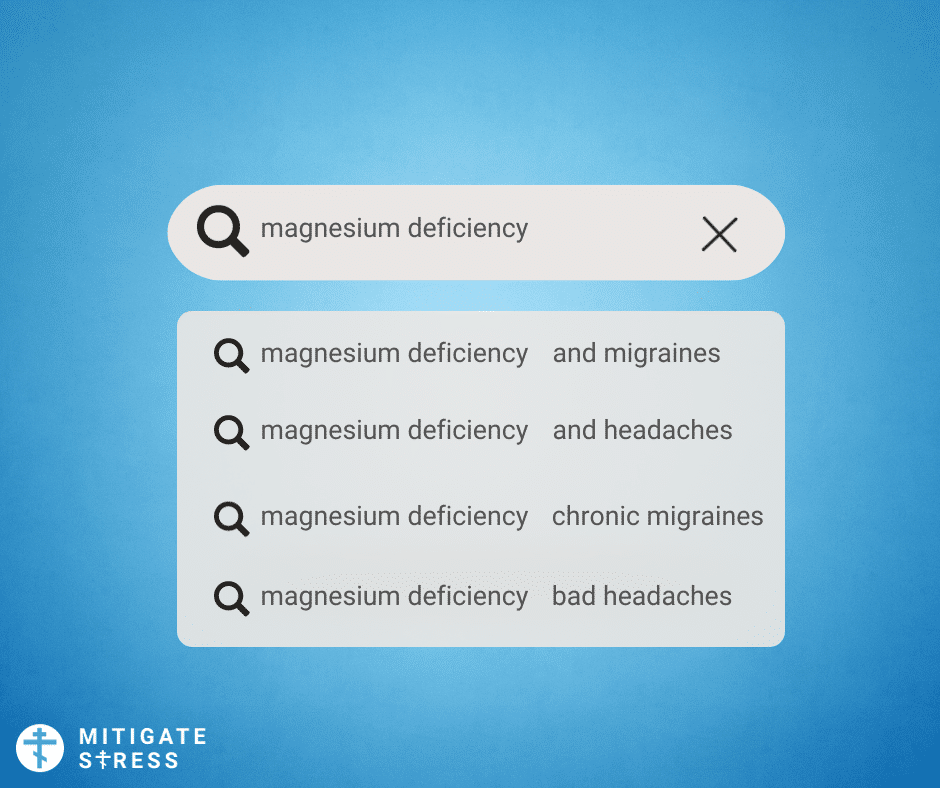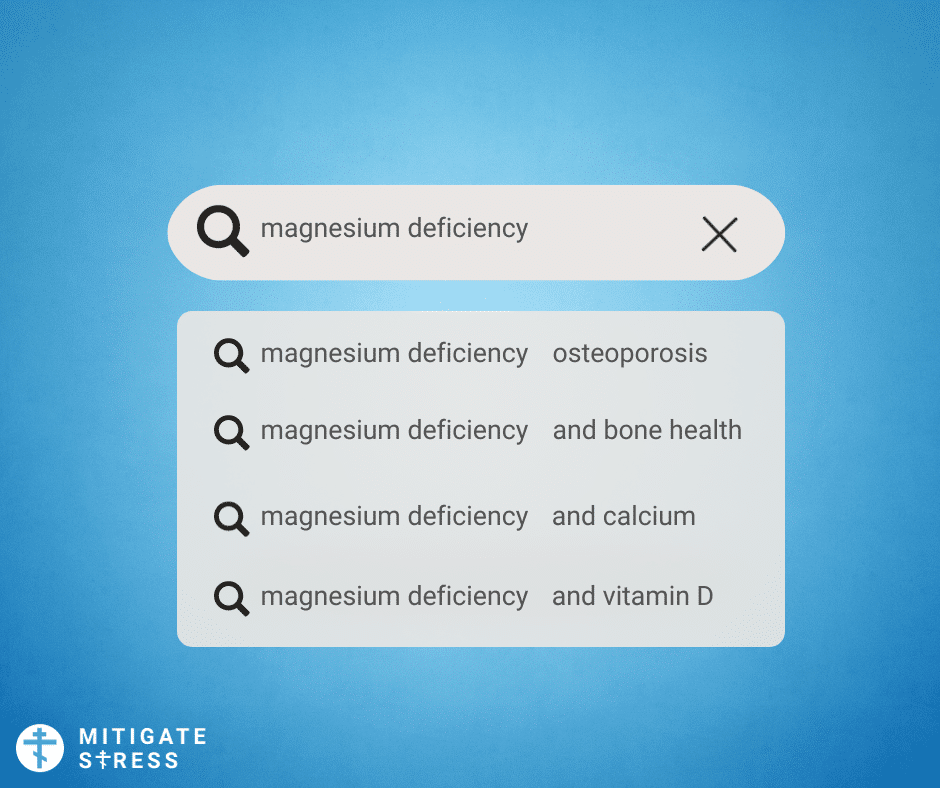Migraine, a neurological condition characterized by recurrent, often debilitating headaches, affects millions of people worldwide. The quest to understand its triggers and develop effective treatments has led scientists to explore various avenues. One such path has shed light on the relationship between migraine symptoms and magnesium deficiency. This article delves into the scientific research supporting this connection and emphasizes the importance of maintaining adequate magnesium levels.
Understanding the Role of Magnesium in Migraines
Magnesium, an essential mineral, plays a pivotal role in numerous physiological processes. A study published on Springer titled “Why all migraine patients should be treated with magnesium” suggests that migraine sufferers may develop magnesium deficiency due to factors such as stress and low nutritional intake1. The researchers argue that magnesium deficiency is much more prevalent in migraine sufferers, underscoring the need for further exploration of this link.
In another comprehensive review on TandF Online titled “Role of magnesium in the pathogenesis and treatment of migraine,” a significant reduction in serum, red blood cell, and mononuclear blood cell magnesium was linked to migraines2. The authors recommend magnesium supplementation in patients with a clinical suspicion of magnesium deficiency.
Magnesium Deficiency in Migraine Pathogenesis
The role of magnesium in migraine pathogenesis extends beyond just being a trigger. A review published in Springer’s journal titled “The role of magnesium in pathophysiology and migraine treatment” summarizes how magnesium deficiency plays an essential role in the pathogenesis of migraine headaches by affecting neurotransmitter release3.
Similarly, an article in MDPI’s Nutrients journal titled “Magnesium as an Important Factor in the Pathogenesis and Treatment of Migraine—From Theory to Practice” discusses the probable mechanisms of correlation of magnesium deficiency with migraine4. The researchers suggest that magnesium deficiency may lead to hyperactivity of cell membranes, which can trigger migraine attacks.
Magnesium Deficiency and Neurological Disorders
The implications of magnesium deficiency extend to various neurological disorders. An article in the Iranian Journal of Basic Medical Sciences titled “The effect of magnesium deficiency on neurological disorders: a narrative review article” explains that magnesium deficiency can lead to the release of substance P, calcitonin gene-related peptide, and other neuropeptides, potentially causing headaches5.
Additionally, Frontiers in Nutrition’s article “Dietary intake of calcium and magnesium in relation to severe headache or migraine” suggests that migraine sufferers typically have lower magnesium levels than the normal population, strengthening the association between magnesium deficiency and migraines6.
Addressing Magnesium Deficiency
While the research is compelling, the question remains: how can we ensure we’re getting enough magnesium?
Our magnesium bicarbonate products offer an easy solution to replenish your body’s magnesium levels. Similarly, our topical magnesium oil can be applied directly to the skin for quick absorption. These products are designed to supplement your dietary intake and provide a convenient way of addressing magnesium deficiency.
However, it’s crucial to remember that while supplementation can be beneficial, it should not replace a balanced diet and regular exercise. Always consult with a healthcare professional before starting any new supplement regimen.
Conclusion
The scientific community’s exploration into the relationship between migraines and magnesium deficiency has revealed promising insights. By understanding this connection, individuals suffering from migraines can take proactive steps to maintain adequate magnesium levels, potentially reducing the frequency and severity of their symptoms. While further research is needed to fully understand the clinical benefit of magnesium in treating migraines7, these findings underscore its importance in overall neurological health.
Footnotes
- Why all migraine patients should be treated with magnesium
- Role of magnesium in the pathogenesis and treatment of migraine
- The role of magnesium in pathophysiology and migraine treatment
- Magnesium as an Important Factor in the Pathogenesis and Treatment of Migraine—From Theory to Practice
- The effect of magnesium deficiency on neurological disorders: a narrative review article
- Dietary intake of calcium and magnesium in relation to severe headache or migraine
- Improvement of migraine symptoms with a proprietary supplement containing riboflavin, magnesium and Q10: a randomized, placebo-controlled, double-blind






0 Comments